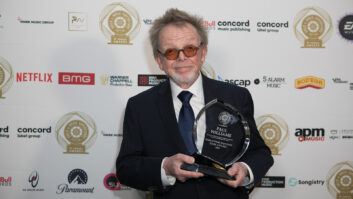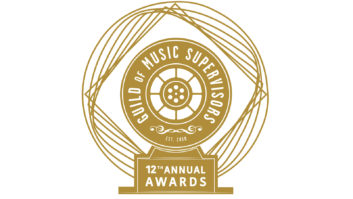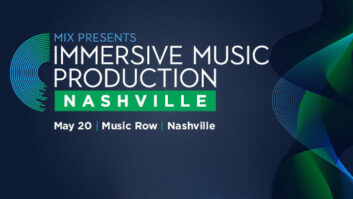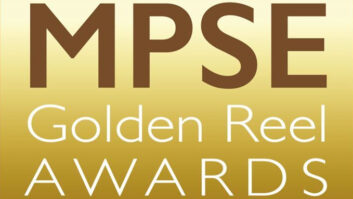How much power do music supervisors have in Hollywood these days? The answer seems to lie in the fact that music supervisor John Houlihan was able to bring Drew Barrymore to tears when he delivered the news that Prodigy cleared their song “Smack My Bitch Up” for use in the film Charlie’s Angels.
In other words, a bunch.
The role and importance of music supervisors has grown exponentially each decade. In the early 1970s, when Martin Scorsese pulled together the music for the movie Mean Streets on his own, it was generally up to the director to negotiate with a band’s A&R representative for song rights. In the ’80s, with such films as Urban Cowboy, Dirty Dancing and Risky Business, there needed to be a middle person who could negotiate with labels and bands to get clearance for songs. Over the past decade, the job has expanded, starting in pre-production, running through the shooting of the film when music supervisors are often called in for creative assistance, and ending only after re-recording and post-production is completed.
For Charlie’s Angels, Houlihan, director Joseph McGinty Nichol and the entire team were counting on the Prodigy song to clear for a certain scene. “It took me three months to clear that song,” Houlihan says. “We had a backup song, but it was so far down creatively from how the Prodigy song worked that it would have been a disaster if it didn’t get cleared.” Two days after their drop-dead deadline, he woke up at four in the morning to call London one more time. He finally got a yes. “I called McG [the director] and he was in an ADR session with Drew Barrymore. When they heard, a weight was lifted off my shoulders and Drew started crying. It was that dramatic. Thank God it cleared, because none of us who worked on the film, having lived with that song in that scene for so long, would have been able to watch it any other way.”
A CREATIVE NEW WORLD
As recently as 1987, when Jeffrey Kimball of Other Noises Music debuted as a music supervisor, there were not many others doing the job. On a nuts-and-bolts scale, not much has changed. “Except that not a lot of the record companies had people set up to handle licensing to films and television back then,” Kimball explains. “So, sometimes you were dealing with an A&R person, the budgets weren’t what they are today and the expectations weren’t what they are today.” In fact, he adds, a large part of his job back then was digging through stacks and stacks of vinyl albums in old record stores looking for hidden gems. “Now, anybody can dig up music by sitting at a computer.”
Today, music is more accessible and the demand for soundtracks has grown. It seems as if nearly every film that’s released these days has a soundtrack attached. Why is that? “It’s the same reason people play slots — when a soundtrack record hits, it hits really, really big. It hits huge,” Kimball answers. “Everybody is thinking Titanic, so there’s this willingness to put out a fair number of soundtrack records in the hopes that one out of 10 or one out of 20 will hit the big time.”
Increasingly, too, movies include songs as scene definers. Think back to how Peter Gabriel’s “In Your Eyes” appeared in the 1989 film Say Anything. Six years before that, Tom Cruise defined Risky Business in one scene by dancing to “Old Time Rock & Roll” in his underwear.
Of course, basic economics teaches us that as demand rises, so does price. It was not unheard of to pay $2,500 for a popular artist’s song 15 years ago. These days, the range runs from $15,000 to $40,000 for a non-hit song. Moreover, there are reports of bands getting anywhere from $500,000 to $1 million for a single song. “The licensing fees for songs have gone haywire,” says Houlihan. “Many people liken it to when Jim Carrey got $20 million for a film. After that, all the other A-list actors demanded that, and it wreaked havoc on budgets.” That same phenomenon is happening in the music-for-film business, with more and more event movies throwing an average of $600,000 to $800,000 at major artists.
“When we were trying to close our major rock deal for Charlie’s Angels, there’s a band we didn’t close the deal with because they wanted a million dollars,” reports Houlihan. “Why? Because that’s what Metallica got for Mission: Impossible 2. Glen Brunman [who handled A&R for the Charlie’s Angels album] said, ‘If we pay this band a million dollars, it will be the end of the music soundtrack business.’ We agreed it was just too high. Could Sony Pictures have pulled out some extra money and made it happen? Yeah. But for the next Sony Pictures film, it would have been that much harder to make rational, reasonable, realistic deals.”
Say you spend several million dollars for a soundtrack album, Houlihan continues, “Who is going to make money off of that? Who’s going to recoup?” He then points to another recent picture that paid $600,000 for the publishing of a big hit song and paid a contemporary artist $500,000 to do a cover version. “And it bombed,” he says. “You could make a movie for that money. It’s crazy, it’s insane to spend $1.1 million just to get a song in the can, let alone the video cost and the marketing cost.”
According to Bill Bishop, senior director of film and television for Warner Bros. Special Products, the cost of a song depends on a number of factors. “There’s nothing that’s set,” he says. “It’s taken on a project-by-project basis. It could be from seven figures to a couple thousand dollars. There are a lot of factors we use to charge with — sometimes it’s the budget of the film or the popularity of the band. If it’s a little independent film and you’ve got a band that’s just been signed to its first album, then we try and skew that on a lower level priceline.”
THE GLORY, THE RISK
Even with the kind of money floating around, there are a number of bands that fall into the extremely difficult to clear category. Pearl Jam, Beastie Boys, Rage Against the Machine and Beck are on that list. “Those artists all have a very important career track to them, and they generally don’t care about my popcorn movies,” Houlihan says. “And I don’t blame them.” After all, there is a lot riding on the success or failure of an album for an artist. Take a band like Lit, for example. They had a couple of hit singles off their 1999 A Place in the Sun release before putting a song on the Titan A.E. soundtrack. Thanks to the movie’s D.O.A. status, their song died immediately and there was no saving it. “[A bad movie] can be like cement shoes, and no matter how good the record is, it gets this stigma and this stench of failure on it,” explains Houlihan. “Radio station program directors don’t want to support it, because it has the name of the movie involved and the movie was a stinker.”
Yet, Warner Bros.’ Bishop says that artists are more amenable to have their songs included in soundtracks. “Yes, yes, yes. I think the big change came after Whitney Houston’s The Bodyguard,” he says. “I think that album woke people up — it sold like 16 million copies — to the advantages of being on a soundtrack album. It can be monetary, but it can also be exposure. You can use it to get to an audience you are trying to get to. We really don’t see that many people saying, ‘I don’t want to be on a soundtrack,’ unless the band doesn’t like it for any aesthetic reasons, but that seems to be less and less.”
Sometimes a film’s perceived potential for failure is as much of a challenge as getting a band interested. Houlihan faced that while looking for bands for Charlie’s Angels. “Everybody thought that Charlie’s Angels was going to be Hollywood’s latest disaster idea,” he reports. “There were rumors coming from the set that there were all these problems, the shooting was going overtime and the Angels hated each other. That was all bullshit, but it hurt us with the music. I’d call the manager of Blink 182, and the day I called him, the morning DJs are talking about the rumors about the Charlie’s Angels shoot and what a piece of shit the movie is going to be. That kind of static out in the media hurt us when we approached people.”
Then again, there are artists who are savvy enough to know when to get involved. Kimball points to his Miramax days, for instance. “I know when Pulp Fiction came out, people were dying to be in a Quentin Tarantino film,” he says. “He didn’t have to pay money, practically. People just wanted to be in the film and associated with him.”
A film’s eventual success or failure isn’t that important from the record company point of view. “We’ve made a lot of money from films that have failed in the box office. So that can be good for us and it doesn’t hurt the band, because nobody saw the film,” Bishop says with a laugh.
LABEL RELUCTANCE
These days, music supervisors are fighting a bigger battle. Thanks to the bevy of record consolidation deals, label competition is fierce. At times, for instance, BMG artists won’t be released to appear on a Sony Records soundtrack, and vice versa. That leads to the occasional soundtrack that does not quite hit a peak. “I think that’s one of the factors that’s hurt the soundtrack business in the last two years,” Houlihan says, “because you don’t end up with the best creative matches. You could have the perfect band on Sony Records, but if it’s a Warner Bros. soundtrack and film, it’s really hard to get those bands. Even if the artist wants to do it, they will be denied by their label sometimes. It used to be if you got to the artist, 10 lawyers and record label people would roll over. Those days are gone; these four record label groups are keeping everything close to the vest.”
Bishop confirms that things have gotten tighter at the label level. “It is true that sometimes labels are protective of their artists,” he says. “They don’t want to be giving the first single that they are going to be working on to a soundtrack album, so there’s a degree of a political dynamic there that goes between the label and the marketing department. It’s sensitive, but we continue to do things, and things seem to be able to be worked out.”
The key, Bishop adds, is to try to find some middle ground. Therefore, although a label obviously wouldn’t give away the first single, they will look for another option. “Maybe it’s the third single,” he says. “If you can’t do what they really want to do, you try to go to some common ground and work something out, maybe with another track. We do deals like that all the time.” After all, he continues, they want the business to grow. “In the end, we want the business to succeed and we want more films like Little Nicky, where we have 12 masters in it, and more films like Almost Famous, where we have something like 17 songs. They are good for us, they are good for the music supervisor.”
Music supervisors have to look for compromise while working with score composers, as well as label representatives. With a laugh, Houlihan says, “I know that there are some film composers out there who literally hate music supervisors, because they view music supervisors as dismantling any cohesive themes or any vibe of the score throughout.” The key, Houlihan says, is to work together and communicate constantly. “They’ll make sure to come in on the same key and come out on the same key,” he explains. “Sometimes a song will be really good, but we need to invisibly help it, so they might do some scoring on top that organically blends in with the song. That way you get all the great energy of a well-known song working in an action sequence, and the action doesn’t suffer.”
Finding a hidden gem or breaking a new band are just two of the quiet joys of working as a music supervisor. On the Charlie’s Angels soundtrack, Houlihan had the opportunity to add the song “Tangerine Speedo” by Caviar at the last minute. “We should have shipped our soundtrack album the day before we heard the song ‘Tangerine Speedo,’” he says. Nevertheless, because one of the soundtrack’s other bands wanted to remaster their song at the 12th hour, the team had an extra day when they discovered the Caviar tune. “We just flipped out for it and it just pushed all of our buttons,” Houlihan recalls. “The song got on the album, in the film twice and used in the trailer spots. So, we’re psyched, and I hope that the band and the song breaks wide open. We love doing that.”
David John Farinella is a freelance writer living in the San Francisco Bay Area.






